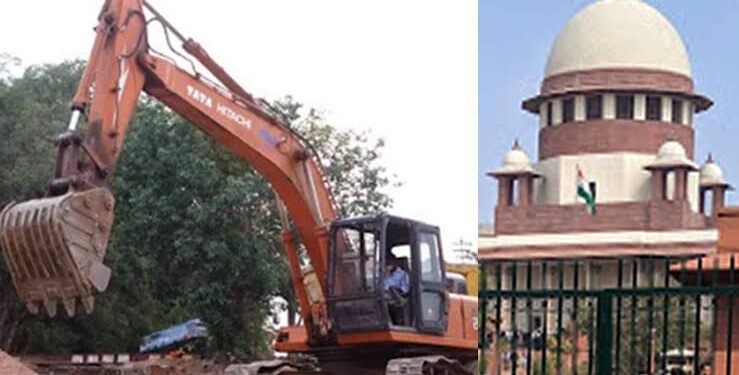New Delhi: The Supreme Court of India has issued comprehensive guidelines to curb the practice of ‘bulldozer justice’, where properties of accused individuals are demolished without due process.
The ruling, delivered by Justices B R Gavai and K V Viswanathan, emphasizes the constitutional rights of accused and convicted individuals, asserting that the Executive cannot overstep its authority.
The court’s decision comes in response to increasing instances of state authorities demolishing homes and properties of individuals accused of crimes, often without proper legal procedures. The Supreme Court highlighted that such actions amount to collective punishment and violate the fundamental rights guaranteed by the Constitution.
Key guidelines laid down by the court include:
Mandatory 15-Day Notice: Authorities must provide a 15-day notice before any demolition, allowing residents time to respond and make alternative arrangements.
Registered Post Notification: Notices must be served via registered post and visibly affixed to the property.
Personal Hearing: Property owners must be given an opportunity for a personal hearing, with the proceedings documented.
Videography of Demolitions: All demolition activities must be recorded on video to ensure transparency and accountability.
Protection of Vulnerable Groups: Special consideration must be given to children, women, and senior citizens to prevent them from being rendered homeless.
Justice Gavai remarked, “The Executive and its functionaries, tasked with protecting citizens, cannot act as judges and execute arbitrary demolitions. Such high-handedness has no place in a democracy.”
The ruling underscores the importance of adhering to due process and protecting the rights of all citizens, regardless of accusations against them. The Supreme Court’s guidelines aim to prevent misuse of power and ensure that justice is served fairly and constitutionally.








